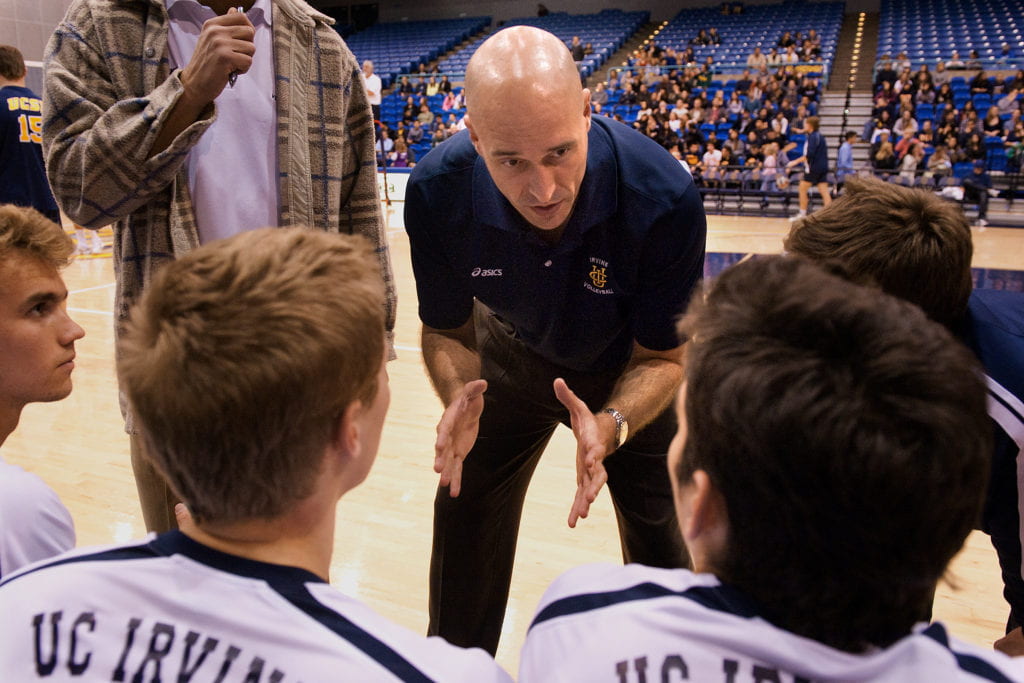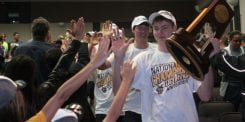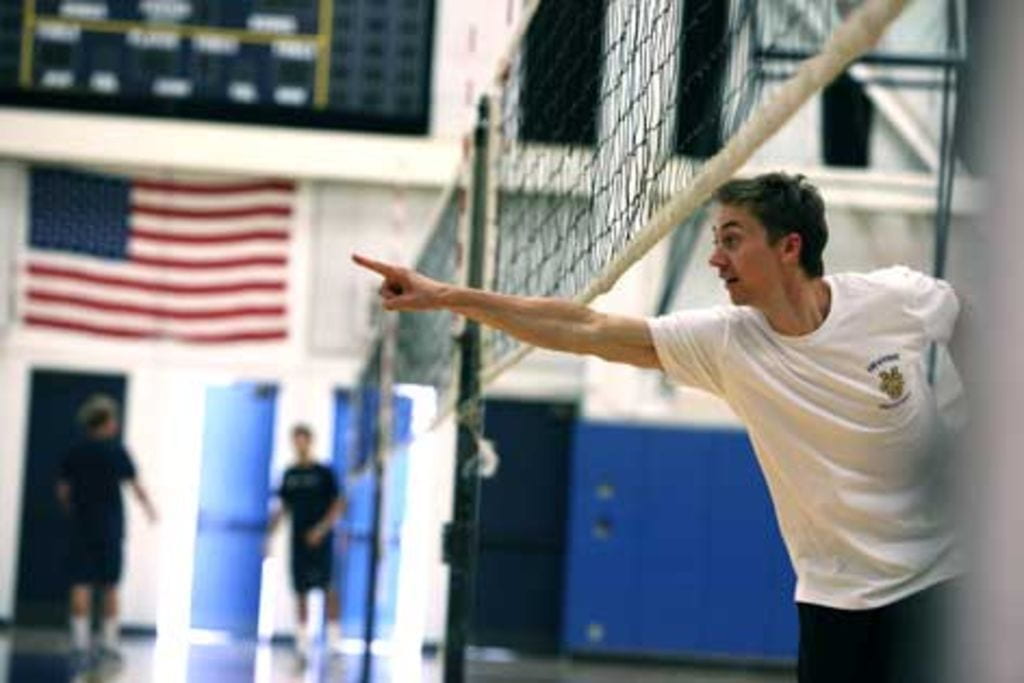Men’s volleyball faces championship challenge
Men’s volleyball coach John Speraw and his team face significant challenges – such as the nation’s most difficult schedule – in their pursuit of their third NCAA title in five years.
The UC Irvine men’s volleyball team entered the 2011 season with a No. 2 national ranking and was one of two preseason favorites to win the competitive Mountain Pacific Sports Federation championship. But head coach John Speraw knows his team must overcome some significant challenges — such as the nation’s most difficult schedule — to capture its third NCAA title in five years.
Not only does UCI’s conference feature eight of the best 10 squads in the country, but the Anteaters play the two non-MPSF top 10 teams — Penn State and Ohio State — Feb. 4 and 5 on Penn State’s home court.
Speraw’s team, however, is loaded — with returning All-Americans
Carson Clark, Jordan DuFault and Kevin Wynne, as well as middle blocker
Austin D’Amore and a talented freshman class. Currently ranked seventh
nationally, the Anteaters head east with a 4-6 record. Speraw talks about what it will take for UCI to win another NCAA championship.
Q: Does entering the season ranked No. 2 nationally put pressure on your team?
A: Possibly. You never really know what goes on in the minds of your athletes. But we’ve been in the position before. We’ve been preseason No. 1 and won the national title, and we’ve been preseason No. 8 and won it. We’ve had some experience with these scenarios and have discussed the issues involved with being a high-ranked team and how that can negatively affect you if you let it.
Q: How’s your team looking so far?
A: We may have the most depth we’ve ever had in the program, but we haven’t really put it together yet. I’m optimistic; this team is fun to work with. But we also know that this year in particular the quality of volleyball is very, very high. So for us to win a championship, we’re going to have to be playing at a very high level at the end of the year. Right now, we aren’t there.
Q: How important will the Penn State tournament be for your team’s development?
A: It’s going to put some pressure on us, mostly because the teams we’re going to play out there — Penn State and Ohio State — are extremely good. I like taking the team to Penn State because that’s where the Final Four will be played. Every time there’s a Final Four in the Midwest or the East, we try to go there during the season to play so we’ll get some experience playing with jet lag at a tough opponent’s home. It’s a very difficult thing to do. So for the Penn State tournament, we’re going to stay in the same hotel that will host the Final Four teams and, hopefully, learn the lay of the land. Win or lose, it’ll be a good experience for us.
Q: Who looks good this year?
A: Southern California looks really good to me. They’re very experienced and still have most everyone who played in the championship game against us two years ago. I think BYU looked really good at our season-opening tournament. They’ll be tough to beat, especially if we have to play them on their home court, which is the toughest place on the road to play. And most people think [defending NCAA champion] Stanford’s going to drop because it lost a couple of their seniors from last year, but actually I think that team has some real talent. And UC Santa Barbara and Hawaii look tough. I think these are going to be the top four or five teams we’ll face.
Q: Annually, the Mountain Pacific Sports Federation features seven or eight of the top 10 teams in the country. What are the advantages – and disadvantages – of being part of such a competitive conference?
A: It’s advantageous when I can go to a recruit and tell him that he can play tough matches every single night. When I’m recruiting in the Midwest or the East, it’s a pretty good enticement. Also, playing good teams every night brings out our best. I think it’s fun and challenging for everyone in the program. The hard part, obviously, is the playoff picture, where only four teams — and, at most, two from our conference — make the postseason to play for the championship. You can literally be ranked eighth in America — like we were last year — and not make the playoffs.
Q: You won NCAA titles in 2007 and 2009, and your team is among the favorites this year. To what do you attribute this every-other-year pattern?
A: It’s difficult to win repeatedly in this conference. After 2007, we graduated a lot of important players who had been on the court for us for quite some time, so when we weren’t very good in 2008, it wasn’t surprising. Then 2009 was great because we had a lot of guys who really improved and had breakout years. So will that happen for us this year? I don’t know. It could — I definitely think we can have a team that’s there at the end.
Q: What makes UCI so attractive for volleyball?
A: It’s in Southern California; it’s by the beach. The administrative support for our program has been great. And the Bren Events Center is a really nice facility, which allows us to recruit high-level athletes. We’ve also created a culture at UCI that it’s a great place for guys with aspirations to play volleyball at the next level. We have a lot of guys playing professionally overseas. We wanted to build a program where we could tell a recruit that if he came here, he’d get a great education and be able to play for a national championship, along with furthering his career goals. And I think we’ve done that.




